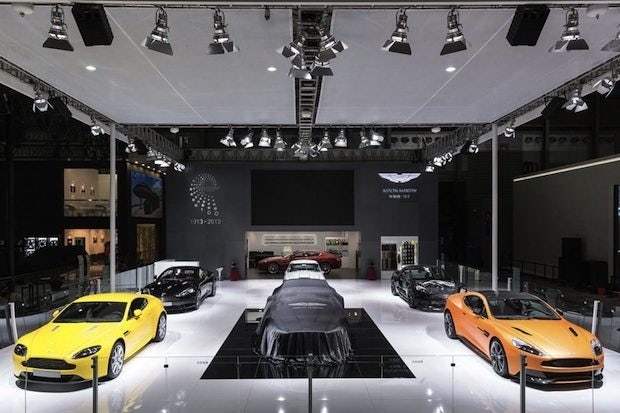
An Aston Martin display at the Shanghai Auto Show in 2013. (Aston Martin)
China’s premium auto segment growth may be feeling the effects of the country’s luxury slowdown, but that’s not going to stop it from becoming the biggest in the world, according to analysis by professional services network PwC.
A new Autofacts Analyst Note by the company finds that China’s high-end auto segment has seen a slowdown that has hit the country’s luxury market as a whole for the past two years, but growth rates are still in the double digits. The segment’s growth rate of 54.5 percent in 2011 slowed to 18.4 percent in 2013, reaching 1.4 million units. Despite the decline, PwC predicts that China will rise from its status as the world's second-largest luxury auto market to surpass the first-place United States in luxury auto sales by as early as 2016.
Young car buyers are a key demographic affecting this market, according to PwC. "The foreign luxury brands seem to appeal to young buyers as they perceive them as safer, more technologically advanced and better quality," said PwC China Automotive Leader Wilson Liu. The note predicts that a desire for showing status through luxury purchases among China’s young, upwardly mobile consumers will cause the Chinese market to “surpass the average luxury penetration rate of 10 percent of mature markets” and see sales of more than 3 million units by 2020.
The growth of this market means that more foreign companies will be looking for opportunities to produce more vehicles domestically.
“As luxury segment proliferates, global premium brands are scrambling to localize production," sad PwC Global Automotive Leader Rick Hanna. "It is expected that almost all major luxury brands are expected to have domestic assembly by 2016." In addition to allowing companies to avoid high tariffs, production localization shows commitment to the market and saves operating costs (and can help brands avoid accusations of price-gouging by CCTV).